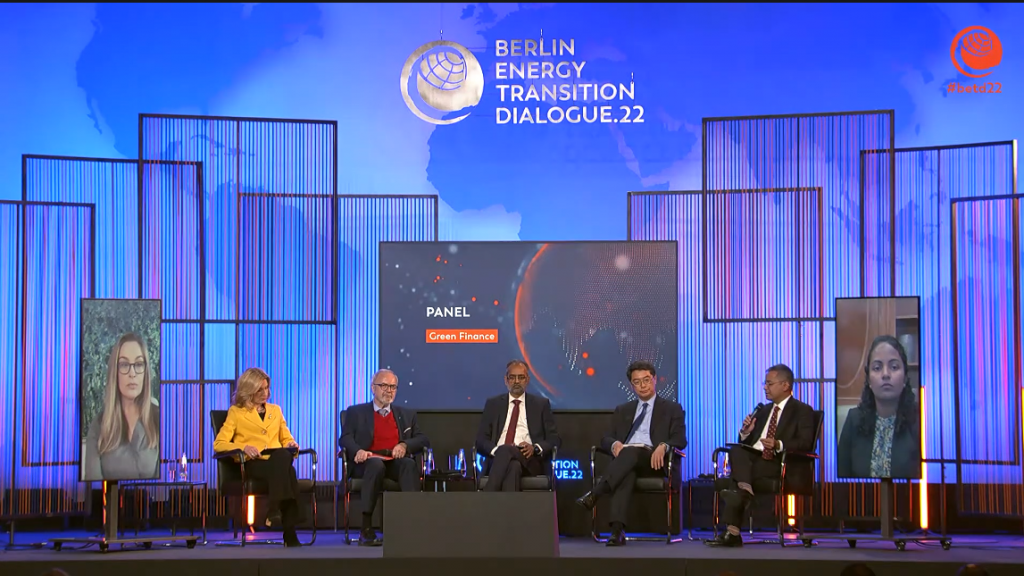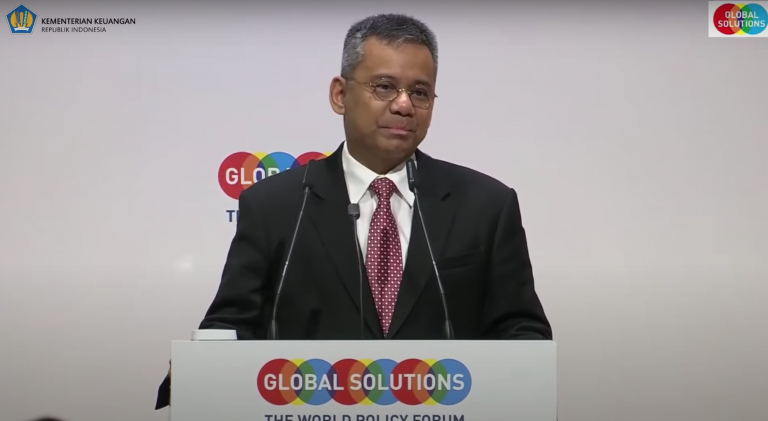
Jakarta – Volatility of world oil prices does not dampen Indonesia’s commitment to reduce the allocation of fossil-based energy subsidies, according to a Ministry of Finance official Saturday (2/4). The government is committed to supporting the clean energy transition by reducing the budget allocation for fossil-based subsidies over the past five years.
This is part of the effort to achieve net-zero emissions, where energy use must begin to shift from fossil-based energy to new and renewable energy, as well as an environmentally friendly development energy.
“The government continues to encourage the development of new and renewable energy through various instruments, one of which is through the state budget. I think the first thing the government should do is show its commitment to the state budget, in terms of spending for a country like Indonesia, through reducing subsidies to fossil-based energy,” said Deputy Finance Minister Suahasil Nazara in a virtual dialogue event Berlin Energy The Transitional Dialogue in Berlin, Germany.
The Indonesian government made an effort to demonstrate its commitment to renewable energy development in the climate budget tagging in the state budget. The climate budget tagging system is an effort to support better climate change budget management. This system is capable of tracking budget allocations for climate change mitigation and adaptation, as well as presenting data on activities, outputs, and the amount of budget allocated by the Government.
“In the last five years, we found that only about 34% of Indonesia’s funding needs could be allocated by the state budget (through climate budget tagging). So, we need to encourage private participation,” said Nazara.
Green financing
Apart from state spending, the Government has shown its commitment to addressing climate change is through green financing. The Deputy Minister of Finance said that Indonesia is the first country to issue green sukuk (Green State Sharia Securities). This green sukuk has been issued since 2018, and the leadership of the green sukuk fits perfectly with the green financing concept.
Green sukuk are also closely related to the green taxonomy which was launched by the President of the Republic of Indonesia earlier this year. The green taxonomy classifies economic activities to support environmental protection and management as well as mitigation and adaptation to climate change. The strategic objective of the green taxonomy is to encourage innovation in the creation of green products, projects, and initiatives according to Government standards.
“The government’s next role is to provide a platform. For a country like Indonesia, it is very important to provide a platform that not only provides space for the state budget to be a catalyst but also so that the state budget can catalyze and invite private participation. We are now trying to build a platform in our country, namely the energy transition mechanism (ETM),” added Nazara.
He said that Indonesia launched this ETM with the Asian Development Bank (ADB) at the UN climate summit in Glasgow, last November. According to Nazara, this will be a platform that combines two very important things, namely carbon reduction facilities and facilities for developing renewable energy.
“For a country like Indonesia where 70% of its electricity source comes from coal-fired power plants, this ETM is very important. This is the platform needed for the energy transition, including environmentally friendly development,” explained the Deputy Minister of Finance. (Hartatik)
Banner photo source: Ministry of Finance Youtube channel















